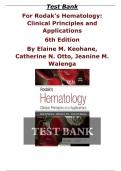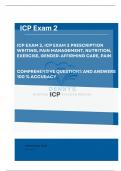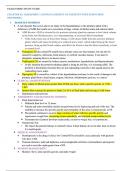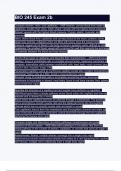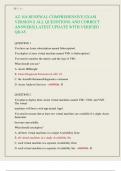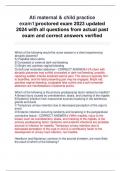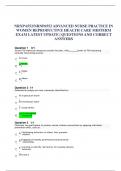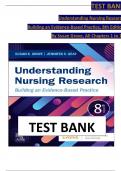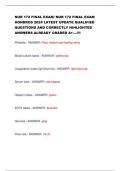Exam (elaborations)
Test Bank For Rodak's Hematology: Clinical Principles and Applications 6th Edition By Elaine M. Keohane, Catherine N. Otto, Jeanine M. Walenga
- Course
- Institution
- Book
Test Bank For Rodak's Hematology: Clinical Principles and Applications 6th Edition By Elaine M. Keohane, Catherine N. Otto, Jeanine M. Walenga This isn't a book,a test bank is a collection of pre-written exam questions and answers designed to help educators assess and evaluate students' knowledge...
[Show more]
